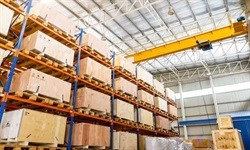
Top stories






AutomotiveHilux Custom Builds offers purpose-built solutions for your business
Toyota South Africa Motors 16 Feb 2026
More news


Marketing & Media
Ads are coming to AI. Does that really have to be such a bad thing?














This includes lobbying government to speed up the flow of goods through borders by implementing more efficient processes, improving infrastructure and promoting SA globally as a prime exporter.
They should also be lobbying government to form public/private partnerships to create more export processing zones like the Coega Industrial Development Zone, which is located within the Nelson Mandela Metropolitan Municipality near Port Elizabeth and covers 110km2 of land.
Duty is not payable on raw materials that are shipped directly to a manufacturer within the zone and the products produced from them are shipped directly out again to be exported. This speeds up the process of exporting goods, involves less administration and reduces costs.
Dubai has become the gateway to the Middle East by creating efficient export processing zones and many other countries are benefiting from developing them.
Another important role export councils could be playing is to lobby the World Trade Organisation to remove prohibitive taxes and subsidies that protect the local markets of many countries. For example, it is difficult to export South African wines into countries that produce their own wine due to protective taxes and subsidies.
Other barriers to exporting to many destinations include sanitary regulations that preclude certain materials from being used in the manufacture of goods and others that apply to exporting fresh produce to some countries. For example, fruit being exported to Europe needs to go through treatment processes to ensure it does not contain bugs, and seeds and grains need to be treated to ensure they will not germinate.
It is understandable that governments need to protect the environment of their countries, but regulations like this are often used as an excuse to restrict the importing of goods. Export councils should be identifying barriers to entry like these and lobbying governments to remove them.
The bulk of exported goods produced in SA are currently shipped to Europe, the USA and China, with resources representing the highest volumes, followed by other types of goods such as fresh produce, wine and motor vehicles. There is vast potential to increase export volumes to overseas destinations and into Southern Africa, and export councils could play a more active role in promoting South Africa as a quality producer.
Barriers to growth in exporting SA products to African destinations include inefficient customs processes and poor customs controls, which result in long queues of trucks being stuck at borders for hours. Export councils should lobby governments and customs authorities to improve border control processes, this would result in less queuing and faster clearance, which would ultimately reduce the temptation for corrupt activities.
The only cost effective alternative to road transport into Africa currently is to ship goods by sea, which takes longer and is often not feasible when delivering to customers in landlocked countries. In these cases the goods may have to be transported by road for several hundreds of kilometres from the port to the customer.
When the roads are in a bad condition it costs more to maintain the vehicles and it takes longer to reach the destination. Export councils should be more actively lobbying African governments to develop public/private partnerships to build less costly transport infrastructure such as railways.
Most of the existing railway infrastructure is owned by parastatals and is not a viable alternative to transporting goods by road. One of the issues is that the gauges on the railway tracks differ from country to country requiring different types of locomotives and carriages.